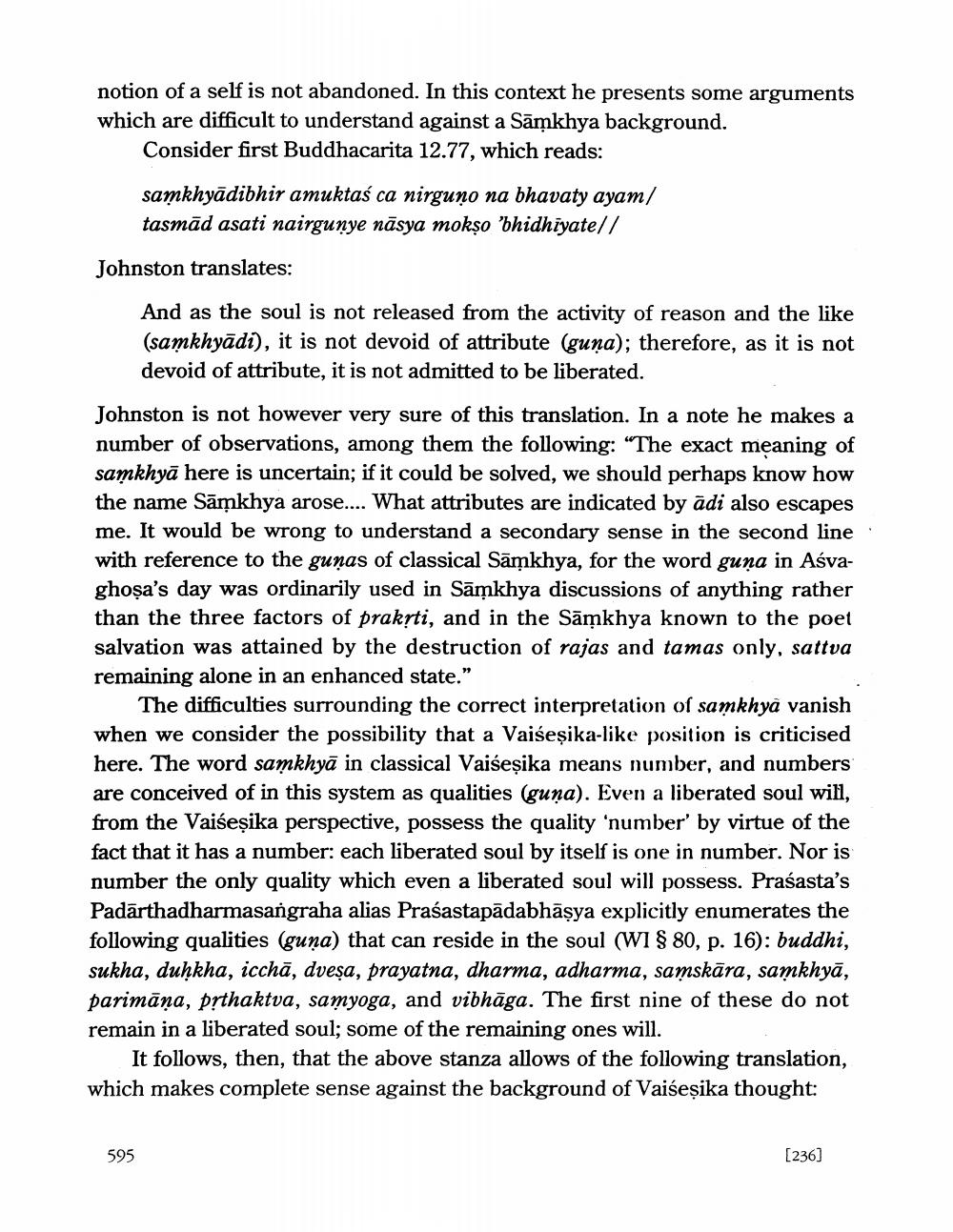________________
notion of a self is not abandoned. In this context he presents some arguments which are difficult to understand against a Sāmkhya background.
Consider first Buddhacarita 12.77, which reads:
samkhyādibhir amuktaś ca nirguņo na bhavaty ayam/ tasmās asati nairgunye nāsya mokso 'bhidhiyatel/
Johnston translates:
And as the soul is not released from the activity of reason and the like (samkhyādi), it is not devoid of attribute (guņa); therefore, as it is not devoid of attribute, it is not admitted to be liberated.
Johnston is not however very sure of this translation. In a note he makes a number of observations, among them the following: "The exact meaning of samkhyā here is uncertain; if it could be solved, we should perhaps know how the name Sāmkhya arose.... What attributes are indicated by ādi also escapes me. It would be wrong to understand a secondary sense in the second line with reference to the guņas of classical Sāmkhya, for the word guna in Aśvaghosa's day was ordinarily used in Sāmkhya discussions of anything rather than the three factors of prakrti, and in the Sāmkhya known to the poet salvation was attained by the destruction of rajas and tamas only, sattva remaining alone in an enhanced state."
The difficulties surrounding the correct interpretation of samkhya vanish when we consider the possibility that a Vaiseșika-like position is criticised here. The word samkhyā in classical Vaiseșika means number, and numbers are conceived of in this system as qualities (guna). Even a liberated soul will, from the Vaiseșika perspective, possess the quality 'number' by virtue of the fact that it has a number: each liberated soul by itself is one in number. Nor is number the only quality which even a liberated soul will possess. Praśasta's Padārthadharmasangraha alias Prasastapādabhāşya explicitly enumerates the following qualities (guna) that can reside in the soul (WI S 80, p. 16): buddhi, sukha, duḥkha, icchā, dveşa, prayatna, dharma, adharma, samskāra, samkhyā, parimāņa, prthaktva, samyoga, and vibhāga. The first nine of these do not remain in a liberated soul; some of the remaining ones will.
It follows, then, that the above stanza allows of the following translation, which makes complete sense against the background of Vaisesika thought:
595
[236]




